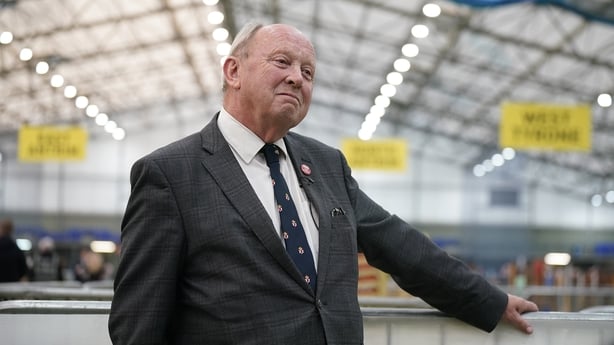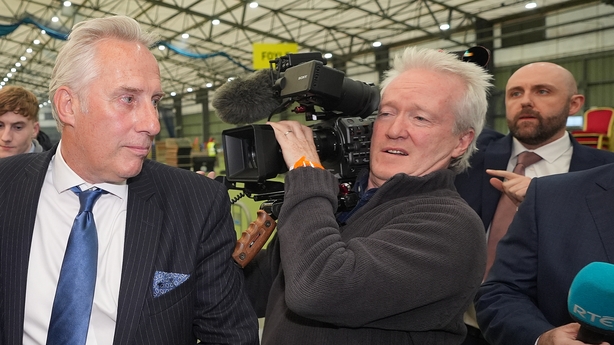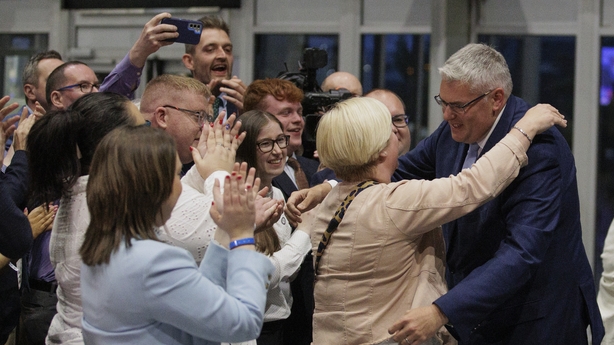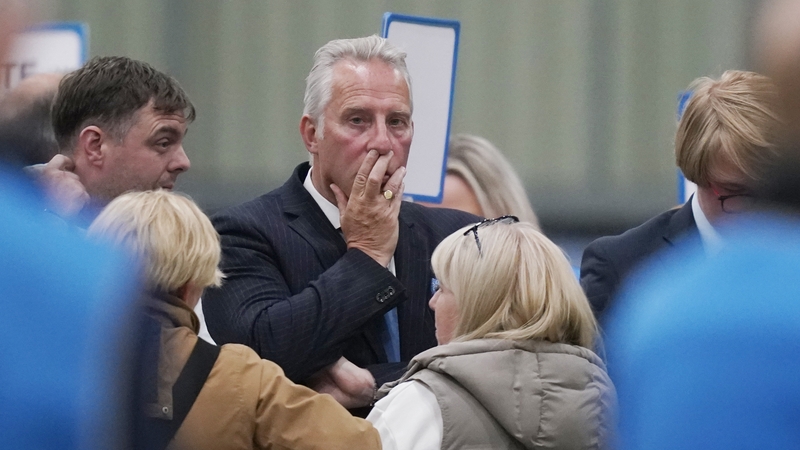Northern Ireland's election headlines were dominated by the Fall of the House of Paisley and bruising results for the DUP.
Stories about those defeats largely eclipsed Sinn Féin's success as it emerged the largest Northern Ireland party at Westminster.
A party that won’t take its seats will leave more empty that others can fill.
The Ulster Unionist Party enjoyed a resurgence with its first MP since 2017.
Alliance made history when Sorcha Eastwood became the first woman and first non-unionist to represent Lagan Valley, the former stronghold of former DUP leader Jeffrey Donaldson.
Her success eased the party's pain at the loss of its deputy leader Stephen Farry in North Down.

The Traditional Unionist Voice gained its first ever Westminster seat with party leader Jim Allister’s stunning victory over Ian Paisley.
The SDLP held its ground and retained its two seats but saw its vote share fall by almost 4%.
Two near misses, or two near gains depending on how you look at it, were also hugely significant.
When rumours began circulating in the Titanic Exhibition Centre in Belfast at around 1am on Friday morning that a shock could be on the cards in the Magherafelt count centre in Co Derry, the reactions were largely of disbelief.
The claim was that Sinn Féin was "in the game" in East Derry, or East Londonderry as the constituency is officially called.
Going into the election it was the DUP's second safest seat, with Gregory Campbell defending a majority of 9,600 and a 40% share of the vote.
Even Sinn Féin officials and press officers at the Belfast count centre were incredulous.
"Wise up" was the considered response from one.
Read more: Latest UK Election stories
Mixed reaction in Ballymena as Paisley loses seat
Many rumours were circulating in those hours as votes were being counted and journalists waited for results.
A short time after the East Derry claim came news that the Ulster Unionists were on course for what would have been a remarkable victory in Fermanagh and South Tyrone.
This rumour had more legs as BBC Northern Ireland carried a clip of the UUP candidate Diana Armstrong stating that she was "very confident" that she would win the seat.
That jarred with expectations as both unionist and Sinn Féin teams in the constituency had privately said they believed Sinn Féin's Pat Cullen would have a winning margin of around 2,000.
"Far too early to call anything there," was the response from a member of the Sinn Féin team in the Titanic Exhibition Centre.
"Diana might be getting a bit ahead of herself there."
That proved to be the case. A Sinn Féin majority of just 57 votes in 2019 became one of more than 4,000; a marginal seat is marginal no more.
There were similar expressions of surprise when word began to filter through that Sorcha Eastwood was "well ahead" in Lagan Valley, the seat that had been a personal fiefdom for Jeffrey Donaldson.
This rumour quickly became fact as Alliance scored a dramatic win.
Then came word that Ian Paisley was under pressure from Jim Allister in North Antrim.
Stunned looks all round.
Journalists in the Belfast count centre frantically made calls and descended upon DUP sources in the huge tent-like hall.
It was quickly established that this seemingly outrageous rumour, the most outlandish of them all, was true.
The House of Paisley had fallen.

As I left the count centre shortly before 6am to head to the Morning Ireland studio in RTÉ’s Belfast office, the East Derry story was still unfolding.
An hour before my departure the Sinn Féin official who had advised me to "wise up" dramatically changed his tune, saying "we’re definitely in play".
At 6.30am word came through a full recount in East Derry and Sinn Féin was, remarkably, in the mix for an eighth seat.
In the end Gregory Campbell won by a majority of just 179 and a vote share of 27.9%.
The fact that Sinn Féin’s Kathleen McGurk ran him so close took everyone by surprise, including many within the party.
"There’s no doubt that East Derry is now in play in the next election," a senior party strategist told me.
Next time around Gregory Campbell is expected to retire so the DUP will be going in with a new candidate without his long history in the constituency.
Much will depend on what happens within unionism.
The TUV seriously damaged the DUP with its candidate taking 4,363 votes while the UUP took 3,412.
Sinn Féin will be targeting the 5,260 SDLP votes as well as attempting to eat into the 3,734 amassed by Alliance.
A seat for so long considered a unionist certainty now appears marginal.
And then there’s Foyle.
SDLP leader Colum Eastwood retained the seat with a majority of 4,166 from Sinn Féin’s Sandra Duffy.
That sounds healthy, but going into this election this was Northern Ireland’s safest seat with a majority of more than 17,000.
What seemed an impossible mountain to climb is now potentially within reach.
Sinn Féin is now the largest Northern Ireland party at Westminster with seven seats while the DUP has dropped from eight to five.
Next time around Sinn Féin will believe that it has a realistic chance of taking nine.
That will alarm unionists who are perhaps more deeply fractured than ever.
The threat to Gregory Campbell in East Derry caused visible panic in DUP ranks.
"We knew some seats were under pressure," said a party official, referring to East Belfast, Lagan Valley and South Antrim.
"East Londonderry and North Antrim were never in that mix.
"Losing North Antrim to another unionist is one thing, losing East Londonderry to Sinn Féin would have been a complete disaster."

Arriving at the Titanic Exhibition Centre for confirmation that he had retained his seat in East Belfast, DUP leader Gavin Robinson lamented the damage caused by disunity amongst unionists.
In his statement after his re-election, he focused on "the need for greater cohesion within the pro-union movement".
"While unionism went into this election with eight seats and comes out with eight seats, we can never again see a situation where pro-union voters are so divided that seats are lost to those who will not promote the union," he said.
The problem he faces is that his party is under attack on a number of fronts.
It lost North Antrim to the more right wing TUV, South Antrim to the more liberal, left of centre Ulster Unionists, and Lagan Valley to the centre ground Alliance.
Unionism has spoken of unionist unity for decades but has become more fractured during that time.
During the same period, nationalists have increasingly coalesced around Sinn Féin, particularly in seats where there is an opportunity to oust a unionist.
Gavin Robinson will no doubt hope that the spectre of republicans taking half of Northern Ireland’s Westminster seats in the next UK General Election will galvanise unionism to the extent that party differences are set aside.
But there is nothing to suggest that is any more likely next time than it was this time.
While south of the border Sinn Féin is wondering what went wrong and struggles to recover from poor results in the European and local government elections, in the north it’s in bullish mood with grand designs for further expansion.
A party that prides itself on operating on an all-island basis is currently performing very differently on both sides of the border.
Another form of partition it will be keen to end.
